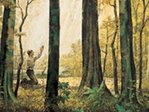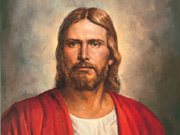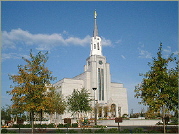"Mythology, mythography, or folkloristics. In these academic fields, a myth (mythos) is a sacred story concerning the origins of the world or how the world and the creatures in it came to have their present form. The active beings in myths are generally gods and heroes. Myths often are said to take place before recorded history begins. In saying that a myth is a sacred narrative, what is meant is that a myth is believed to be true by people who attach religious or spiritual significance to it. Use of the term by scholars does not imply that the narrative is either true or false."
I personally do believe that The Book of Mormon is a literal history of the inhabitants of the South and North American continents and contains the history of Christ's visit to the Americas shortly after his death and resurrection in Jerusalem. It is my hope that anyone would read The Book of Mormon with an open and objective mind and find the truths within, as this reader did.
DIVINELY INSPIRED?
* 5 stars out of 5
Reviewed by an Amazon user, 2006-12-14I am not a member of the LDS Church, and never have been. However, I have read the LDS Scriptures and am a Gnostic Christian. I get tired of hearing fundamentalist Christians tearing "Mormons" apart because "Mormons" don't spout the same doctrinal Shibboleths as fundamentalists. Much of the rancor settles around Joseph Smith Junior and his claims to Divine revelation.
Rather than go into a dissertation on Myth I will direct the truly intelligent reader looking for genuine answers (rather than a target for their religious bigotry, hatred, and self-righteousness, growing from their own inadequacies and uncertainties) to The Power of Myth, which is available as a book, videotape, or DVD.
Literalists of all kinds, both Biblical literalists and Book of Mormon literalists, are groping in the dark, making a lot of noise, cursing the darkness. It's better to kindle a light than curse the darkness, so that is what I'll do.
To have had a Divine encounter, as I have, and as Joseph Smith Junior had, is to Know That, which cannot be uttered in human speech except in the form of Myth. God is so utterly beyond conceptualization and language that only Myth can convey these Truths. To understand Myth is to be enabled to enter into the experience that gave rise to the Myth. Such works are the Book of Mormon and other "Mormon" scriptures, as well as the Bible.
As a closing remark, I will point the reader to the Book of Abraham, one of the "Mormon" scriptures, "translated" by Joseph Smith Junior. The actual book behind the Book of Abraham is an ancient Egyptian funerary text. It actually says nothing at all akin to what Joseph Smith wrote in the Book of Abraham. Does that mean Joseph Smith was a false prophet, was not Divinely inspired? Or does this rather point out the Transcendent nature of the Divine Touch? I contend that the ancient Egyptian funerary text, in the hands of Joseph Smith Junior, served as a catalyst for Divine revelation. As a Gnostic I have the same experience with the Bible and other spiritual works, and even non-spiritual works. All can be "grist for the Mill" in the hands of one touched by the Divine. Joseph Smiths experiences were of a very intense visionary nature, and were most likely utterly overwhelming. It therefore does not shock, or even surprise me, that he used Myth to convey what he had seen and heard.
The Book of Mormon is a testament to Joseph Smiths ineffable experience of the Divine, and is his effort to communicate that experience to the rest of us in the Power of Myth.
















